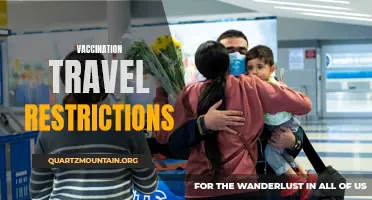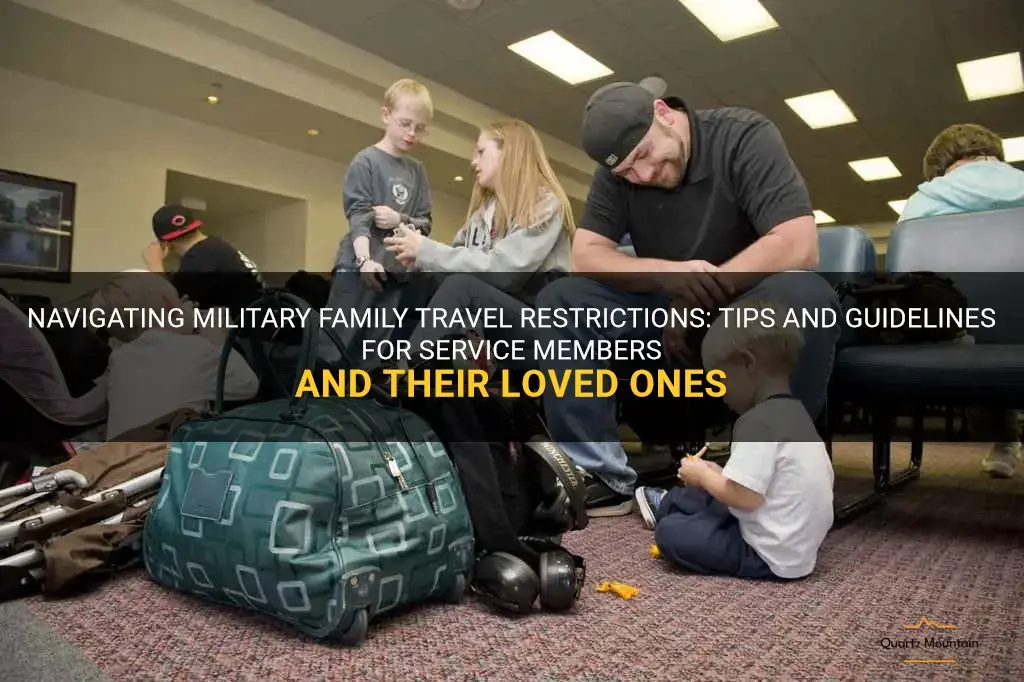
Military family travel restrictions have become a hot topic of discussion in recent years. With the ever-changing global security landscape, governments around the world are implementing measures to ensure the safety of their armed forces and their loved ones. Whether it is the deployment of troops to conflict zones or the threat of terrorist attacks, countries are increasingly imposing travel restrictions on military families to minimize the risks involved. While these restrictions are essential for maintaining security, they can also be a source of frustration and anxiety for families who want to stay connected with their loved ones. In this article, we will explore the reasons behind these restrictions and how they impact military families.
What You'll Learn
- What factors contribute to military family travel restrictions?
- How do military family travel restrictions impact deployment schedules?
- Are there any exemptions or exceptions to military family travel restrictions?
- How do military families cope with the stress and uncertainty caused by travel restrictions?
- What steps are being taken to mitigate the impact of travel restrictions on military families?

What factors contribute to military family travel restrictions?
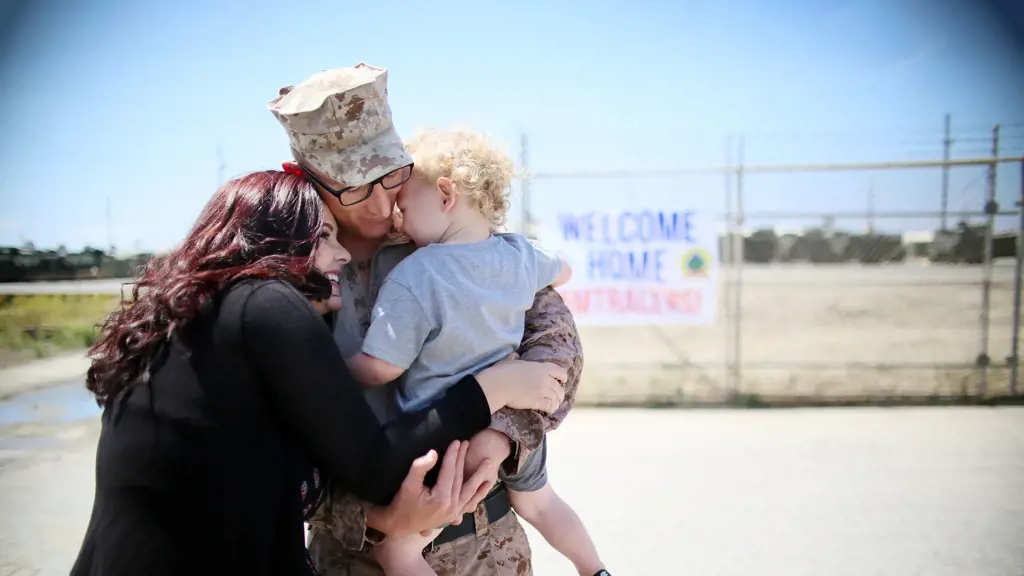
Military families often face unique challenges and sacrifices due to their loved ones' service to the country. One of these challenges is the imposition of travel restrictions that affect their ability to visit or move to certain locations. These travel restrictions are in place to ensure the safety and security of military personnel, their families, and the missions they are assigned to. Several factors contribute to these travel restrictions.
- Operational requirements: The primary reason for military family travel restrictions is operational requirements. Soldiers, sailors, airmen, and marines are often deployed to locations around the world, and their families may not be able to accompany them due to the specific nature of the mission or the security situation in the area. In such cases, travel restrictions are put in place to reduce the risk to military families.
- Threat level: Travel restrictions can also be imposed based on the threat level in a particular region. If there is an increased risk of terrorist activity, civil unrest, or natural disasters in a specific area, military families may not be allowed to travel there. These restrictions aim to protect military families from potential harm.
- Force protection: Force protection measures are designed to minimize the vulnerability of military personnel and their families. Travel restrictions play a crucial role in this regard. By limiting travel to certain locations or advising against non-essential travel, the military ensures that families are not exposed to unnecessary risks.
- Immigration and visa limitations: Military families stationed abroad may face travel restrictions imposed by the host country's immigration laws or limitations on the availability of visas or residency permits. These restrictions may make it challenging for military families to travel to or reside in certain countries.
- Family support services availability: Military installations provide various support services and resources to help military families cope with the challenges of military life. In some cases, local community resources may not be readily available or may not meet the specific needs of military families. As a result, travel restrictions may be put in place to discourage families from relocating to areas where support services are limited.
- Availability of housing: Military installations often have a limited number of housing units available for military families. If the demand for housing exceeds the supply, travel restrictions may be imposed to control the influx of families to a specific location.
- Health and safety considerations: Health and safety concerns can also contribute to travel restrictions for military families. If there is an outbreak of a contagious disease, environmental hazards, or other health considerations in a particular area, families may be advised not to travel there.
It is important to note that travel restrictions can vary depending on the branch of service and the specific circumstances of each military family. It is the responsibility of military commanders to assess the risk and implement appropriate measures to protect military families and ensure mission readiness.
In conclusion, military family travel restrictions are put in place to safeguard the well-being of military personnel and their loved ones. Factors such as operational requirements, threat levels, force protection, immigration laws, availability of support services and housing, and health and safety considerations all contribute to these restrictions. While they may pose challenges for military families, they are necessary to maintain the safety and security of those who serve.
Navigating Current Hot Spot Travel Restrictions: What You Need to Know
You may want to see also

How do military family travel restrictions impact deployment schedules?
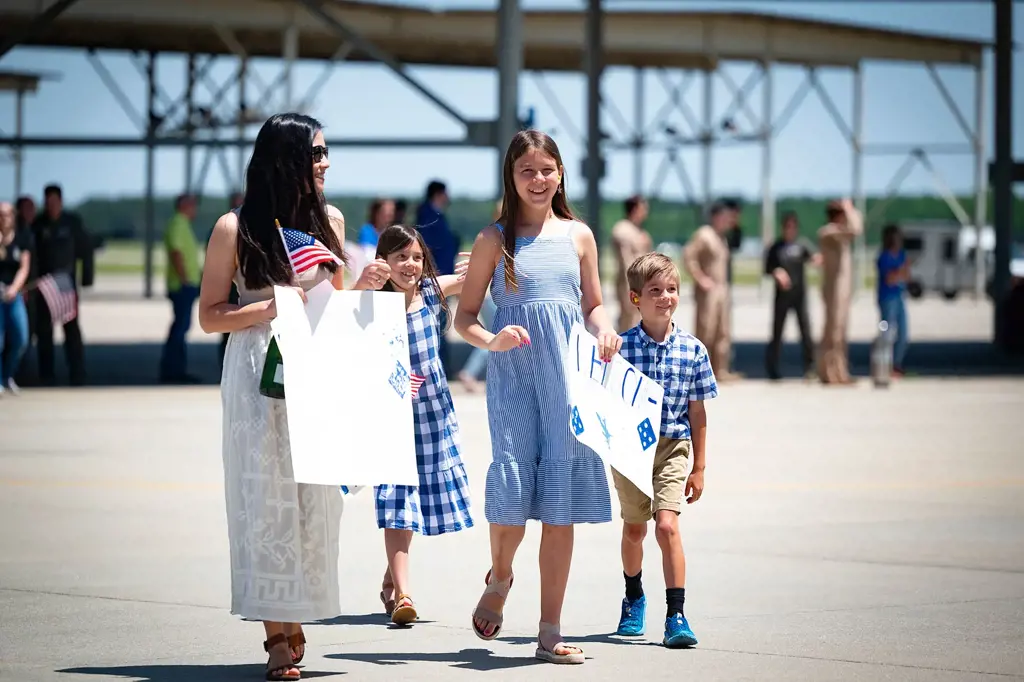
Military family travel restrictions can have a significant impact on deployment schedules. These restrictions are put in place for a variety of reasons, such as security concerns, resource allocation, and operational requirements. While they are necessary for the well-being and safety of military families and the overall efficiency of military operations, they can often lead to changes in deployment schedules.
One of the primary effects of travel restrictions is the delay or cancellation of deployments. When military members are unable to secure travel arrangements for their families, they may be forced to postpone their deployments until the restrictions are lifted or alternative arrangements can be made. This can result in a backlog of deployments, causing stress and uncertainty among military personnel and their families.
Additionally, travel restrictions can also impact the duration and length of deployments. Oftentimes, deployments are scheduled for a specific period of time, with a planned return date. However, when travel restrictions are in place, deployment lengths may be extended due to the inability to rotate personnel in and out of the operating area. This can have significant consequences on the morale and well-being of military members, as well as their families who are left waiting for their loved ones to return home.
Furthermore, travel restrictions can also disrupt the support systems and networks that military families rely on during deployments. Many military families depend on the support of extended family and friends while their loved ones are away. These support systems can be particularly crucial when it comes to childcare, household maintenance, and emotional support. When travel restrictions prevent family members from visiting or providing assistance, the burden falls solely on the military member's immediate family, leading to increased stress and strain on already challenging situations.
Lastly, the uncertainty caused by travel restrictions can have negative effects on the mental and emotional well-being of military families. Deployments are already stressful and emotionally taxing for both the deployed military member and their family. The added uncertainty and disruption caused by travel restrictions can exacerbate these feelings, leading to increased anxiety, depression, and overall decreased resilience.
In conclusion, military family travel restrictions can have far-reaching impacts on deployment schedules. They can lead to delays or cancellations of deployments, extended deployment lengths, disruption of support systems, and negative effects on the mental and emotional health of military families. It is important for military leadership to communicate and provide support to families impacted by these restrictions and to work towards finding alternative solutions that minimize the impact on deployment schedules while prioritizing the safety and well-being of military personnel and their families.
Ireland Implements New Travel Restrictions to Curb the Spread of COVID-19
You may want to see also

Are there any exemptions or exceptions to military family travel restrictions?
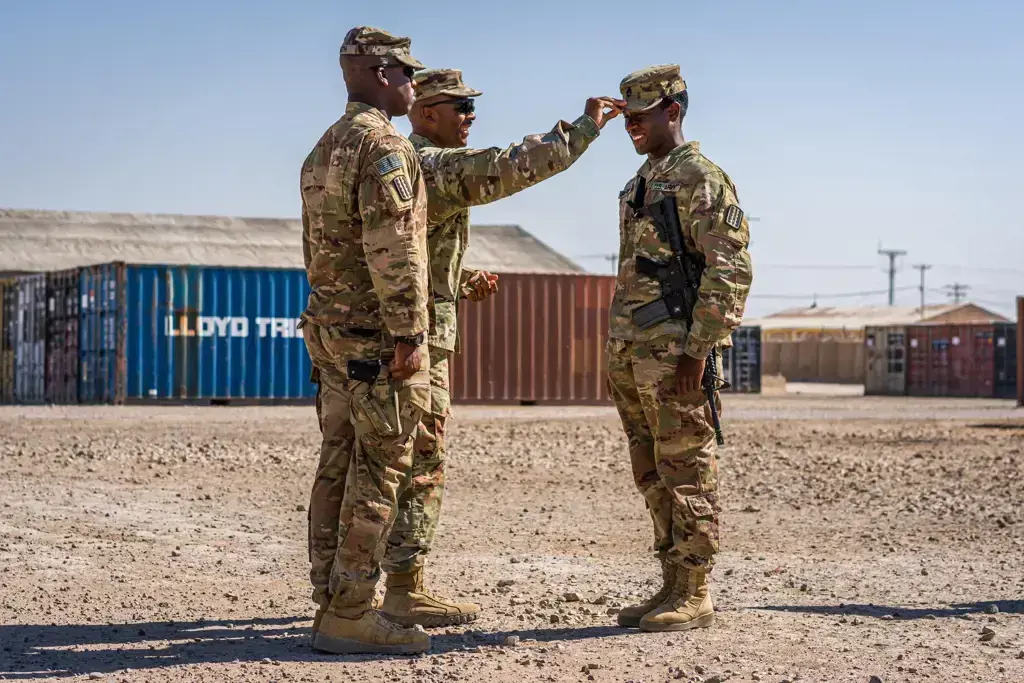
As a military family, you may find yourself facing travel restrictions due to your service member's responsibilities and commitments. These restrictions are put in place to ensure the safety and security of military operations and personnel. However, there are some exemptions and exceptions that may apply to military family travel restrictions.
One common exemption is for military dependents who need to travel for medical reasons. If you or a family member requires medical treatment that is not available at your current location, you may be able to travel to a different facility. This exemption typically requires approval from your service member's commanding officer and may be subject to certain conditions, such as obtaining medical documentation.
Another exemption may apply if you or your service member receives PCS (permanent change of station) orders. If you are scheduled to relocate to a new duty station, you will typically be allowed to travel despite any travel restrictions in place. It is important to communicate with your chain of command and follow the proper procedures when receiving PCS orders to ensure a smooth transition.
Additionally, there may be exceptions for emergencies or extenuating circumstances. If you or your family is facing a situation that requires immediate travel, such as a family emergency or other unforeseen event, it is important to communicate with your service member's commanding officer as soon as possible. They will be able to provide guidance and potentially arrange for an exception to the travel restrictions.
It is important to note that any exemptions or exceptions to military family travel restrictions are typically granted on a case-by-case basis. This means that you will need to communicate with your service member's chain of command and provide any necessary documentation or evidence to support your request for an exemption. It is also important to be aware that travel restrictions can change rapidly due to operational needs or security concerns, so it is important to stay informed and follow any guidance or orders from your service member's unit.
In conclusion, there are exemptions and exceptions to military family travel restrictions, particularly for medical reasons, PCS orders, and emergencies. It is important to communicate with your service member's chain of command and follow proper procedures to request these exemptions.
Donald Trump Implements New US Travel Restrictions in Response to Emerging Travel Concerns
You may want to see also

How do military families cope with the stress and uncertainty caused by travel restrictions?

Military families are faced with unique challenges when it comes to dealing with travel restrictions. These restrictions can create added stress and uncertainty for families who are already dealing with the demands of military life. Here are some ways that military families cope with these challenges:
- Creating a support network: Military families often rely on one another for support. They connect with other military families who understand the unique challenges they face. This support network can be particularly helpful during times of travel restrictions as families can share information and provide emotional support.
- Utilizing technology: Technology plays a crucial role in helping military families stay connected during times of travel restrictions. Video calls, messaging apps, and social media platforms allow families to communicate regularly and share important moments despite the physical distance. This kind of connection can help alleviate some of the stress and uncertainty caused by not being able to travel.
- Seeking professional help: Military families have access to a variety of resources to help them cope with the stress and uncertainty caused by travel restrictions. Military bases and installations generally offer counseling and support services that can assist families in managing their emotions and providing guidance during difficult times.
- Focus on self-care: Taking care of oneself is important for all individuals, but it becomes even more critical for military families during times of travel restrictions. Engaging in activities that promote personal well-being, such as exercise, hobbies, and relaxation techniques, can help reduce stress and provide a sense of normalcy and control.
- Emphasizing communication: Clear and open communication is key in helping military families cope with the stress and uncertainty caused by travel restrictions. Families should be encouraged to openly discuss their concerns, fears, and frustrations. By keeping communication lines open, families can better support one another and work together to find solutions to any challenges that arise.
- Focusing on the positive: It can be easy to get caught up in the stress and uncertainty of travel restrictions, but military families often find it helpful to focus on the positive aspects of their situation. This may include celebrating milestones and achievements, finding joy in everyday life, and staying optimistic about future opportunities for travel and reunions.
In conclusion, military families cope with the stress and uncertainty caused by travel restrictions by creating a support network, utilizing technology, seeking professional help, focusing on self-care, emphasizing communication, and focusing on the positive. These strategies help families navigate the challenges of military life and strengthen their resilience during times of travel restrictions.
Exploring Orlando Amid Travel Restrictions: What You Need to Know
You may want to see also

What steps are being taken to mitigate the impact of travel restrictions on military families?
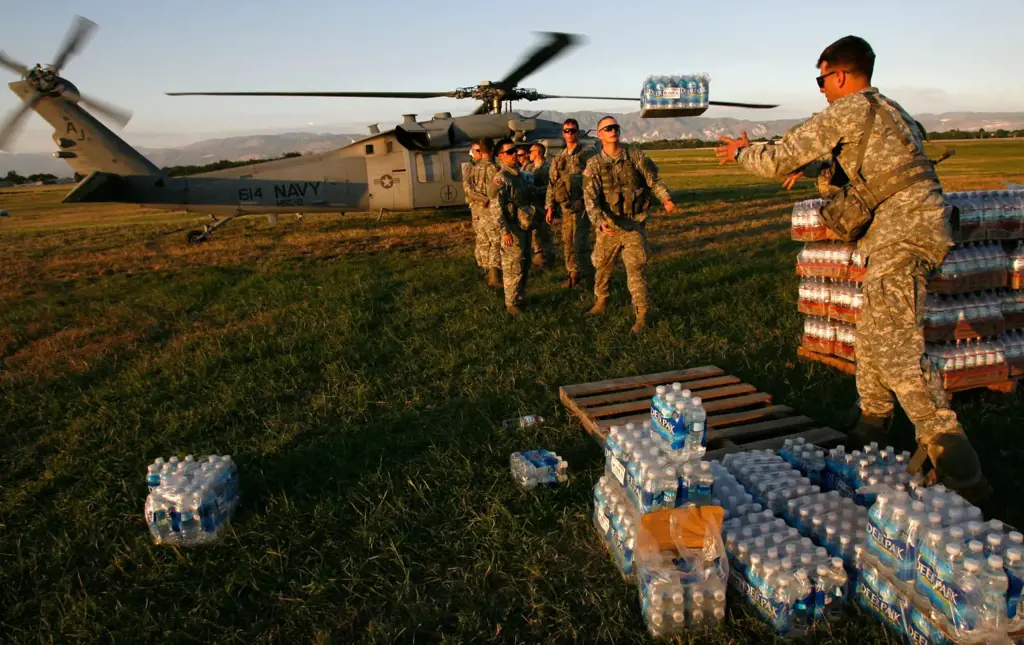
In light of the ongoing COVID-19 pandemic, travel restrictions have had a significant impact on military families. The nature of military service often requires frequent relocations, and these restrictions have disrupted this essential aspect of military life. However, steps are being taken to mitigate the impact and support military families through these challenging times.
One of the primary measures being implemented is the utilization of virtual resources and technologies. Many military agencies and support organizations have shifted towards offering virtual support services to help families navigate the difficulties caused by travel restrictions. Virtual family readiness programs, online counseling services, and informative webinars have become invaluable resources for military families during this time. These initiatives allow families to access the support they need remotely, mitigating the impact of travel restrictions on their well-being.
Additionally, military leadership has been working diligently to ensure that families are provided with accurate and timely information regarding travel restrictions. Regular updates and communication channels have been established to keep military families informed about changes in travel policies and procedures. This helps families plan and prepare for any upcoming relocations, even if they are subject to restrictions.
Moreover, efforts are being made to provide additional support to military families who are facing delays or cancellations due to travel restrictions. Financial assistance programs have been expanded to help mitigate the financial burden caused by unexpected changes in relocation plans. These programs may include reimbursements for travel costs, temporary housing allowances, or emergency funds to cover any unexpected expenses.
Furthermore, flexibility and understanding have been emphasized throughout the military community. Flexibility in deployment schedules, temporary duty assignments, and housing options has been encouraged to accommodate the travel restrictions and reduce the stress on military families. The military leadership is working in close collaboration with service members and their families to find practical solutions that prioritize their safety and well-being.
Lastly, there is ongoing support for military families through various community networks and organizations. Online support groups, social media platforms, and virtual events have been established to create a sense of community and connection, even during times of physical separation. These platforms enable military families to share experiences, seek advice, and offer emotional support to one another.
While travel restrictions continue to pose challenges for military families, steps are being taken to mitigate their impact. By leveraging technology, providing accurate and timely information, offering financial assistance, promoting flexibility, and fostering a sense of community, the military is striving to support and empower families during these uncertain times. Together, these efforts help alleviate some of the difficulties caused by travel restrictions and ensure that military families receive the assistance they need.
Exploring Norway: Understanding the Current Travel Restrictions and Guidelines
You may want to see also
Frequently asked questions
Yes, there are currently travel restrictions in place for military families. Due to the ongoing COVID-19 pandemic, the Department of Defense has implemented various travel restrictions to ensure the safety and well-being of military personnel and their families.
The main reasons for the military family travel restrictions are to prevent the spread of COVID-19 among military installations and to protect the health and safety of military personnel and their families. These travel restrictions help minimize the risk of exposure to the virus and help maintain readiness within the military.
Yes, there are some exceptions to the travel restrictions for military families. Certain travel may be deemed necessary for mission requirements, humanitarian reasons, or other exceptional circumstances. However, these exceptions are reviewed on a case-by-case basis, and military personnel and their families are encouraged to consult with their chain of command or the appropriate military authorities for guidance and approval before making any travel plans.




